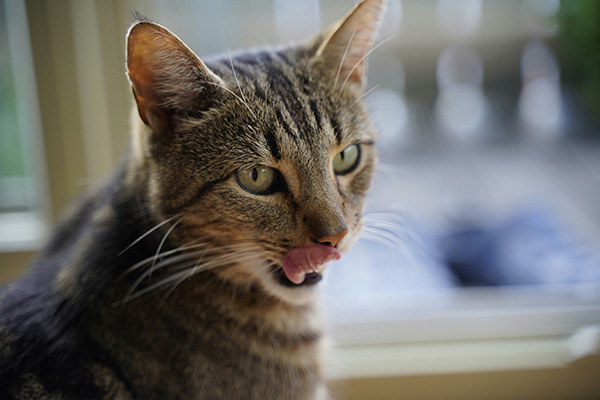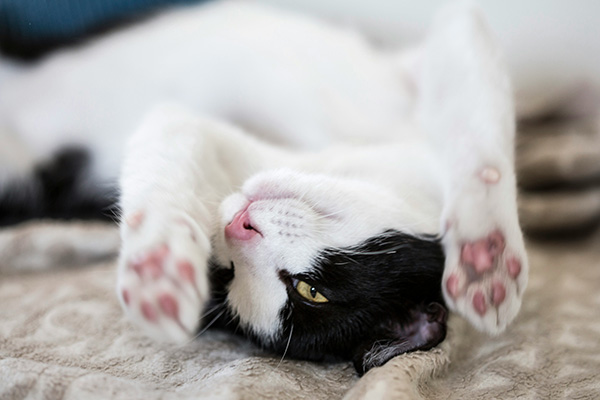Coconut oil has recently gained popularity in pet care, with many cat owners exploring its potential benefits for their feline companions. This trend is largely driven by the oil's well-known benefits for humans, such as skin hydration and improved digestion, leading to curiosity about whether these perks could extend to pets.
Meanwhile, it’s important to handle this topic carefully. While coconut oil has potential advantages for cats, there are risks involved, making it crucial for pet owners to understand both sides of the equation. In this article, we'll explore the uses, benefits, and potential risks of coconut oil for cats, helping you make an informed decision.
What is Coconut Oil?
Coconut oil is derived from the meat of mature coconuts and consists mainly of saturated fats. It is rich in medium-chain triglycerides (MCTs), such as lauric acid, and is known for its ease of digestion and rapid metabolism. These properties have led to its widespread use in health and beauty products.
Different types of coconut oil are available, including refined and unrefined (virgin) options. Virgin coconut oil undergoes minimal processing and retains a higher concentration of the coconut's natural compounds, making it a favored option for those looking to maximize health benefits. The MCTs and lauric acid in coconut oil are particularly relevant for cats, offering potential health benefits that we'll explore further.
Coconut Oil Benefits for Cats

Skin and Coat Health
Cat owners frequently use coconut oil, especially therapeutic virgin coconut oil, to enhance their pets' skin and coat health. When applied topically, coconut oil can moisturize dry skin, soothe sensitive skin, and reduce itching, which is particularly beneficial for cats with atopic skin allergies. Regular use of organic coconut oil not only improves the texture of a cat’s fur, leading to a shinier, healthier coat, but also supports the overall health of the cat's skin by addressing damaged skin and reducing inflammation.
Digestive Health
When ingested, coconut oil can support your cat's digestive health by improving nutrient absorption and acting as a natural remedy for mild constipation. Its lubricating properties can also help prevent and manage hairballs, a common cat issue.
Immune System Support
The lauric acid in coconut oil gives it antimicrobial and anti-inflammatory properties, which can strengthen your cat's immune system. This may help decrease the frequency of infections and promote overall health, making it a beneficial supplement to your cat's diet when used in moderation.
Hairball Prevention
Coconut oil can be especially helpful for cats dealing with hairballs. By improving overall digestion and adding lubrication to the intestinal tract, coconut oil can help prevent hair from accumulating and forming hairballs. Cats frequently groom themselves and ingest hair, which often leads to hairballs being regurgitated. Adding coconut oil to the diet makes the hair more likely to pass smoothly through the digestive tract, reducing the frequency of hairball-related vomiting.
Some cat owners add a small amount of coconut oil to their cat’s food during shedding season to help prevent hairballs from becoming a problem.
Arthritis and Joint Health
Incorporating coconut oil into senior cats' diets can provide significant benefits. Coconut oil's natural anti-inflammatory properties, stemming from its saturated fatty acids, can relieve arthritis and joint pain. Consistent use may help decrease chronic inflammation, enhancing mobility and quality of life for senior cats. Holistic veterinarians often recommend coconut oil, fish oil, and olive oil as part of a holistic remedy for supporting joint health in aging cats.
Wound Healing
Thanks to its antimicrobial and anti-fungal properties, cat coconut oil can treat minor cuts and abrasions on your cat's skin. Using coconut oil directly on the affected area can aid in healing and minimize the chance of infection. The anti-yeast properties of coconut oil, combined with its rich content of vitamin E and other fat-soluble vitamins, help soothe itchy skin and support the overall health of your cat's coat. However, pet parents must avoid using too much coconut oil to prevent unwanted weight gain or an upset stomach in their pets.
Improved Oral Health
Coconut oil's antibacterial qualities can support your cat's oral health. It can be used as a natural toothpaste for cats to help reduce the buildup of plaque and tartar, lowering the risk of gum disease and bad breath. While it may not be as effective as regular brushing or professional cleanings, using coconut oil as part of an oral hygiene routine can help promote healthier gums and teeth.
Applying a small amount of coconut oil to your cat’s teeth and gums can also soothe inflammation and irritation caused by periodontal disease or other oral health issues.
Potential Flea and Parasite Repellent
Though coconut oil may not be as powerful as traditional flea treatments, some pet owners use it as a natural way to help deter fleas and parasites. Its lauric acid content can interfere with the life cycle of fleas and other parasites, making it less hospitable for them to live on your cat’s skin. Applying a thin layer of coconut oil to your cat’s coat may help repel fleas, though it’s important to continue using veterinarian-recommended flea treatments.
In addition, coconut oil can soothe irritated skin and reduce inflammation caused by scratching for cats already suffering from flea bites.
Anti-Inflammatory Properties
Coconut oil has anti-inflammatory properties, making it an excellent natural remedy for cats suffering from chronic inflammation due to conditions like arthritis, inflammatory bowel disease (IBD), or skin irritations. Consistently giving your cat small doses of coconut oil can help lessen joint inflammation, easing pain and stiffness in senior cats or those with arthritis.
Applying coconut oil topically for cats with inflammatory skin conditions, such as eczema, can help soothe inflammation and reduce redness and discomfort.
Energy Boost
Coconut oil contains MCTs, a fast source of cat energy. In contrast to long-chain fatty acids, which are stored as body fat, medium-chain triglycerides (MCTs) are rapidly processed by the liver, offering a quick energy source. This is particularly advantageous for senior cats or those that have reduced their activity levels.
Some cat owners notice increased energy and activity in their pets after incorporating coconut oil into their diets. It can also enhance mental clarity and cognitive function, especially in older cats experiencing a decline in activity.
How to Safely Introduce Coconut Oil to Your Cat’s Diet

Consulting with a Veterinarian
Before incorporating coconut oil into your cat's diet, it's essential to consult with a veterinarian. They can offer tailored guidance based on your cat's unique health requirements and confirm that coconut oil is safe for them.
Starting Slowly
Introduce coconut oil gradually into your cat's diet to prevent digestive issues. Begin with a small quantity, like 1/4 teaspoon, and gradually increase the amount while observing how your cat reacts.
Monitoring Your Cat’s Response
As you introduce coconut oil for cats, keep a vigilant eye on your cat's health. Look for signs of allergies or digestive issues, such as vomiting or diarrhea, which could indicate that your cat doesn’t tolerate coconut oil well. If any adverse reactions occur, it’s vital to discontinue use and consult your veterinarian to determine whether coconut oil or perhaps another alternative, such as fish oil or olive oil, might be better suited for your cat’s needs. Monitoring is key to ensuring that the potential health benefits of coconut oil, like its anti-inflammatory properties and support for brain health, are achieved without compromising your cat's overall health.
Choosing the Right Coconut Oil
When selecting coconut oil for your cat, choose organic, virgin coconut oil derived from fresh coconuts to ensure the highest quality. This type of oil retains the most beneficial properties, including fatty acids and capric acid, and is generally considered the safest for pets. Opting for high-quality oil is essential to maximize the benefits of coconut oil, such as supporting a healthy coat and skin and avoiding any harmful additives that might be found in lower-quality products.
Potential Risks and Side Effects of Coconut Oil for Cats
Pancreatitis and Weight Gain
One of the primary concerns with cat coconut oil is its high content of saturated fats, which can contribute to unwanted weight gain and potentially increase the risk of pancreatitis. This serious condition affects the pancreas. While the medium-chain fatty acids (MCFAs) and caprylic acid in coconut oil provide several health benefits, such as supporting healthy digestion and promoting a healthy coat, the high fat content means that too much coconut oil can lead to serious health issues like pancreatitis.
Digestive Upset
When introducing coconut oil into your cat's routine, particularly as part of their cat food, some cats may experience digestive upset, such as diarrhea or vomiting. This is often due to the rich fatty acids in coconut oil, which can be difficult for some cats to process. To promote healthy digestion and prevent potential issues, it's crucial to begin with small quantities and slowly increase the dosage while carefully observing your cat's response.
Allergic Reactions
While uncommon, some cats may experience allergic reactions to coconut oil. Signs of an allergy can include itching, swelling, or trouble breathing, which may suggest an atopic skin allergy or other sensitivities. If you notice any of these signs after applying coconut oil to your cat's skin or incorporating it into their diet, please stop using it immediately and consult with your veterinarian to ensure your pet's continued health and safety.
Frequently Asked Questions (FAQs)

Is Coconut Oil Safe for All Cats?
Coconut oil may not suit all cats, particularly those at risk of pancreatitis or obesity. It's important to consult your veterinarian before adding it to your cat's diet.
Can Coconut Oil Replace Traditional Medications?
No, coconut oil should not replace traditional medications prescribed by a veterinarian. It may be used as a supplementary treatment in some cases, but it’s not a substitute for proper medical care.
How Much Coconut Oil Should I Give My Cat?
The appropriate dosage varies, but generally, 1/4 teaspoon per day is recommended for small cats, gradually increasing if no adverse reactions occur.
Is coconut oil good for overweight cats?
Coconut oil is high in calories and fat, so it should be given carefully to overweight cats. It’s better to use it sparingly in such cases.
Can coconut oil upset my cat’s stomach?
Yes, consuming large amounts of coconut oil can lead to digestive discomfort, such as diarrhea. Always start with a small amount and watch for any negative reactions.
